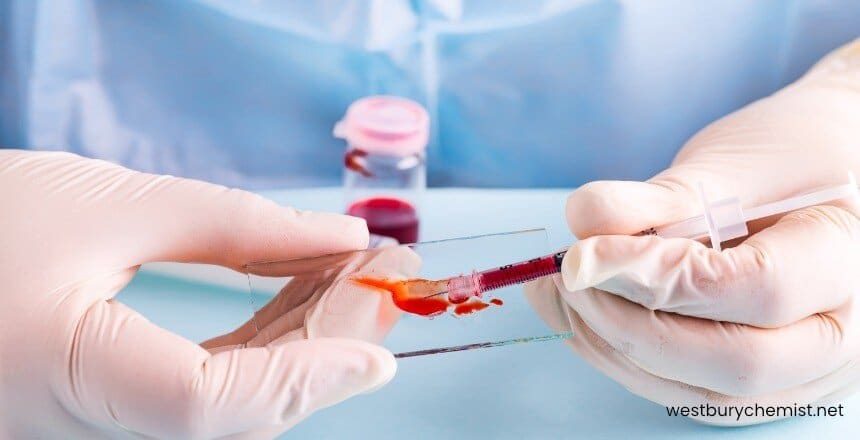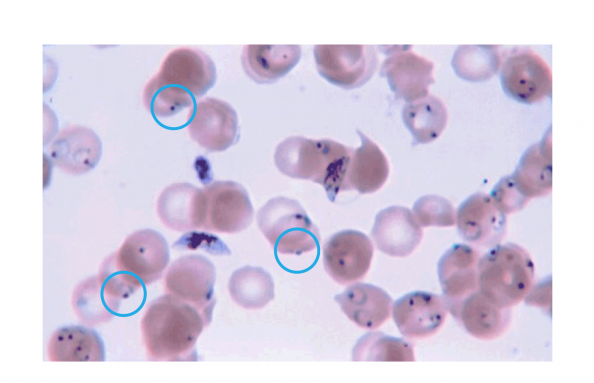
The female Anopheles mosquito transmits malaria to people. In 2019, WHO reported a total of 229 MILLION infections, with M new cases in 2019. There were 409,000 deaths due to malaria in 2019. It’s serious but preventable and curable – unlike yellow fever.
In this article, you’ll learn all you need to know about malaria, its causes, symptoms and treatments.
What is Malaria?
A female mosquito can transmit malaria through one bite. If you are on vacation in a hot country, you might notice a few bites here and there. Often, they make us ill, and some bites are painful.
Mosquitoes transmit malaria from humans to humans. Without timely treatment, the disease can be fatal. This parasitic disease poses a serious health risk. Four types of parasites cause the disease. Unlike the flu or yellow fever, people with the disease experience a variety of symptoms.
Symptoms of Malaria
A bite can spread between 7 and 18 days after it occurs, according to the NHS. You feel malaria symptoms between the time you get bitten and when you begin to show symptoms. Symptoms from the bite can also appear for up to a year after it occurred. In some cases, symptoms can appear like the flu when bitten.
Some people at higher risk for the condition may suffer deadly complications. Once you get infected, you can expect your health to decline. The symptoms range from having a fever to having shivers to sweating and fatigue. The NHS have documented the symptoms of the disease as follows:
- a high temperature of 38C or above
- feeling hot and shivery
- Headaches
- Vomiting
- muscle pains
- Diarrhoea
- generally feeling unwell
Cause of Malaria
Currently, you are not likely to encounter mosquito bites in the United Kingdom. Mosquitoes tend to inhabit tropical countries with high temperatures.
Our customers at Westbury Chemist in Streatham get encouraged to take antimalarial medicines. Due to the mild symptoms, you can usually fight off the disease.
Based on the figures above, 409,000 people perished from malaria. When travelling to tropical regions, tablets are essential. Mosquito bites cause malaria.
When mosquitoes bite you, they transmit parasites into your bloodstream. When your immune system weakens, you get sick or die, as were 409,000 people in 2019.
Types of Malaria
There are four types of malaria parasites that can infect your system. These are as follows:
- Plasmodium Falciparum malaria
- Vivax
- Ovale
- Malariae
Let’s take a look into each one of these to understand how they behave.
Plasmodium Falciparum
The deadly parasite is falciparum. Infection with this parasite can be deadly. Wikipedia says Plasmodium causes 50% of all cases. The parasite gets transmitted when a female mosquito bites you (Anopheles).
Vivax
The Vivax strain is not infectious. Vivax parasites, but, can cause severe disease and death. Due to an enlarged spleen, fewer blood cells circulate in your body, which can lead to anaemia. Spleens are above the abdomen.
Ovale
Falciparum and Vivax parasites are more dangerous than ovale. They cause tertian malaria. Wikipedia says tertian is when your body temperature is higher than usual.
Malariae
Unlike the other parasites, malariae does not cause severe malaria. Recurring fever every three days is the symptom this parasite exhibits.
Transmission of Malaria
Mosquitoes bite people to transmit malaria. Mosquito bite disease gets transmitted to humans only by female mosquitos. A mosquito spreads malaria.
A human cannot spread it. However, there are 3 modes of transmission and they are as follows.
- Bite from a female mosquito
- Blood transfusion from an infected person as well as the contamination of needles and other medical equipment
- Pregnancy. A pregnant woman who becomes infected with malaria can possibly transmit the disease to their babies. We’ll touch more on malaria during pregnancy shortly.
People cannot spread it to other people like the flu.
Diagnosis & Treatment of Malaria
You can detect malaria in several ways. It’s not enough to look at symptoms since it can be mistaken for other ailments.
Microscopic Diagnosis
Blood samples get examined under a microscope for microscopic diagnosis. Samples get smeared and stained on slides. Blood staining makes parasites easier to identify under the microscope. CDC says this is the “gold standard” for determining whether you have the disease or not.
Antigen Detection
Certain medical clinics and practices are offering Rapid Diagnosis Tests (RDTs). This test delivers results within 2 to 15 minutes, unlike microscopic diagnosis.

Image Source: MedMastery
Travelling to high-risk areas requires you to take antimalarials. You can find them at your local pharmacy or chemist. For more information, speak with your GP. Consult your travel clinic or doctor for the best protection.
See guidance and medication advice from the NHS. This will break down the medications that can be taken.
Malaria During Pregnancy
When it comes to pregnancy, malaria can create serious complications. The reason is that different parasites can affect people.
Your local GP or chemist may be able to offer you advice about the safest route. The effects of malaria on your unborn child and you can both be deadly. These include:
- Maternal anemia
- Loss of your child
- Premature delivery
- Slow growth of your baby in your uterus
- Weight loss of your child (to the average, this is less than (2.5kg or 5.5 pounds).
- Increased risk factor of death
You can get advice from your GP or chemist if you are pregnant. It’s evident that the risks are worth taking. Take precautions and travel safely.
Countries with Malarial Risk
Several tropical regions of the world are prone to malaria, according to the NHS listings:
- Africa and Asia
- Central and South America
- Haiti and the Dominican Republic
- Areas in the Middle East
- Some Pacific Island
The UK does not have malaria. But, travellers from tropical areas may bring the disease back with them.
Do you plan to travel soon?
Antimalarials are available at our travel clinic. For more information on malaria, you should research the country you’re visiting.
Cerebral Malaria
Antimalarial Tablets
A wide range of antimalarial medications is available at Westbury Chemist. We offer malaria tablets in Streatham. If you wish to prevent becoming ill from infected mosquitoes.
Malaria FAQs
-
a high temperature of 38C or above
-
feeling hot and shivery
-
headaches
-
vomiting
-
muscle pains
-
diarrhoea
-
generally feeling unwell
Reference: NHS
Generally speaking, malaria is a curable disease if treated in a timely manner. This is the case if it is not a complicated infection. If it becomes or is complicated, then there are risks of severe illness and possibly death.
Malaria is not a one-time disease. It can be contracted more than once. If you have had it in the past and persist in not taking the necessary medication then there is a chance that you can get it again. Before you travel, visit your GP or local travel clinic for more advice.
Malaria can stay in your system for up to 6 months without any symptoms or detection. Commonly,
Both are dangerous diseases. They have the means of causing severe illnesses and even death. However, malaria is curable and treatable whereas yellow fever is not. Read our blog post about yellow fever for more information.
Subscribe to our Newsletter
Join our Westbury Chemist newsletter to stay up to date with the latest travel information.
Get in touch about your travels and malaria
We’re here to advise and ensure you have safe travels. Get in touch today and our team will gladly help.

